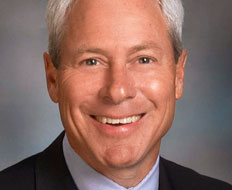Food manufacturers looking for a leg up on their competition in this bleak economy can be more active in educating and supporting the operators they serve.
This was the prevailing theme at the International Foodservice Manufacturers Association (IFMA) 40th Annual Forecast and Outlook Seminar held in Rosemont, Illinois, on September 28
“The universal objective is to help suppliers learn how to help and support operators drive more traffic,” conference chairman Andy Glaser, vice president and general manager for Kellogg’s Specialty Channels, said at the seminar’s opening.
According to Chicago-based research firm Technomic, manufacturers are already working to assist operators more than they used to. Some 81 percent of manufacturers plan to increase their emphasis on educating operators about menu trends; 81 percent look to provide information on product yield optimization; 75 percent seek greater collaboration on supply chain issues; and another 75 percent will present education on consumer insights.
Kathy Gaynor, Technomic director of research and consulting services, said reaching out to operators helps them confront the rocky consumer environment.
As of August, unemployment and underemployment combined sat above 16 percent, while the consumer confidence index sat at 44.5, nearly 70 points below its prerecession high of 111.9 in July 2007.
“Consumer confidence was actually higher following the September 11 attacks than it is today,” Gaynor said at the IFMA conference.
Add in rising food costs, weak GDP growth, ballooning deficits, and policy issues, from immigration crackdowns and child nutrition to low interest rates, and restaurant operators face a callous economic reality. (Amid Technomic’s dark numbers, the research firm did reveal one positive: Real foodservice growth is now flat.)
Moving forward, Technomic principal Melissa Wilson said, operators will continue seeking ways to communicate value beyond price, a sentiment that opens the door for food manufacturers to be solutions-oriented partners.
“Operators are arm wrestling suppliers on every bit of price, so the pressure’s on suppliers to offer solutions,” Wilson said.
From menu orientation and image enhancement to insights and innovation, namely cost savings and yield maximization, manufacturers looking to heighten their business must be a supportive, discerning partner to operators eager to improve.
“We’re in a mature industry,” Technomic vice president Joe Pawlak told the crowd. “Now it’s about being competitive and different.”
The conference highlighted potential avenues food manufacturers might take to help operators succeed in this tenuous economic climate.
Jason Whitmer of the Cleveland Research Company urged manufacturers to know their customers better, develop a game plan for the affluent customer, and contribute to product-quality upgrades and differentiation. He said sincere and strategic collaboration positions manufacturers for a long-term payback.
“There’s more humility in this business than we’ve seen in a long time,” Whitmer said, noting that collaboration has emerged as a new marketplace necessity.
The Futures Company executive chairman J. Walker Smith gave attendees an impassioned challenge to understand the marketplace’s deeper currents to create business opportunities. He suggested manufacturers and operators extract risk from the equation—even calling security the “new ambition”—and work to deliver more enjoyable, intimate experiences.
“We need to understand how the [economic] curves going south offer us an opportunity to turn things around,” Smith said.
John Schuller of Foodmix Marketing Communications advised manufacturers to move the discussion from “my price and program” to “our shared consumer.” Seeing the world through a shared lens, he said, positions suppliers for business and operators for increased traffic and sales.
“We’re all about the consumer now. Suppliers can’t just sell the product and then get out of the way,” Schuller said. “It has to be: ‘I’ve got a program and a plan to build your business.’”
Boston College dining head Patricia Alice Bando, Firehouse Subs’ director of brand marketing Kristen Majdanics, and Focus Brands foodservice licensing vice president Alan Weiner offered conference attendees an operator’s perspective on what they seek from their foodservice partners.
Weiner spoke of the competitive opportunity today’s market volatility sparks.
“I spend 25 percent of my time visiting manufacturers, but I wish it was the opposite and they were coming to me,” he said. “I want to see consumer insights and innovation on the spot. Those that can deliver have a leg up.”



